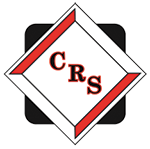In today’s fast-paced healthcare environment, managing and analyzing clinical data is more critical than ever. Remote data abstraction has emerged as a transformative solution for healthcare organizations seeking to streamline data collection, improve accuracy, and optimize resources. By leveraging remote teams of skilled abstractors, organizations can meet the growing demands of data abstraction without overburdening internal staff.
This article delves into the essentials of remote data abstraction, its benefits, best practices, and how it is shaping the future of healthcare data management.
What Is Remote Data Abstraction?
Remote data abstraction involves the process of extracting relevant clinical data from patient records, such as electronic health records (EHRs), imaging reports, and laboratory results, by professionals working off-site. These abstractors specialize in retrieving specific data points required for clinical registries, quality improvement initiatives, and regulatory compliance.
Healthcare organizations often outsource this task to third-party vendors or remote teams with expertise in handling diverse datasets. Common use cases include:
- Submissions to clinical registries (e.g., ACC NCDR, STS, GWTG Stroke Registry).
- Reporting for quality programs like CMS’s Merit-Based Incentive Payment System (MIPS).
- Data preparation for research studies and performance benchmarking.
Key Benefits of Remote Data Abstraction
1. Cost Savings
- Hiring and training in-house abstractors can be expensive. Remote data abstraction offers a cost-effective alternative by eliminating the need for additional staff and infrastructure.
2. Access to Expertise
- Remote teams often include certified abstractors with extensive experience in handling clinical data. Their expertise ensures high-quality abstraction and compliance with registry guidelines.
3. Increased Scalability
- As data demands grow, remote abstraction services can scale up or down based on organizational needs, offering unmatched flexibility.
4. Improved Accuracy and Compliance
- Professional abstractors are well-versed in abstraction protocols, reducing the risk of errors and ensuring data submissions meet regulatory requirements.
5. Faster Turnaround Times
- Remote teams operate efficiently to meet tight deadlines, ensuring timely submission of data to registries and regulatory bodies.
6. Reduced Administrative Burden
- Outsourcing data abstraction allows internal staff to focus on core responsibilities, such as patient care and operational management.
How Remote Data Abstraction Works
Step 1: Initial Assessment
- The remote abstraction provider evaluates the organization’s data needs, including the specific registries and quality measures involved.
Step 2: Secure Data Access
- Abstractors gain access to the organization’s EHR system through secure, HIPAA-compliant methods, ensuring patient confidentiality.
Step 3: Data Extraction
- Abstractors retrieve relevant data points from patient records based on predefined criteria and registry guidelines.
Step 4: Validation and Quality Assurance
- Extracted data undergoes rigorous quality checks to ensure accuracy, completeness, and adherence to abstraction rules.
Step 5: Data Submission
- Finalized data is submitted to the appropriate registry or reporting system within the specified deadlines.
Best Practices for Remote Data Abstraction
To maximize the benefits of remote data abstraction, healthcare organizations should adopt the following best practices:
1. Choose the Right Partner
- Select a provider with a proven track record in data abstraction and expertise in your organization’s specific registries and reporting requirements.
2. Ensure Data Security
- Verify that the provider follows strict security protocols, such as encryption and secure login credentials, to protect sensitive patient information.
3. Provide Clear Guidelines
- Clearly define the scope of work, abstraction protocols, and performance metrics to align expectations with the remote team.
4. Facilitate Effective Communication
- Establish regular communication channels between your internal team and the remote abstractors to address questions and provide feedback.
5. Monitor Performance
- Track the provider’s performance through audits, feedback, and data quality reviews to ensure consistent results.
6. Invest in Training and Updates
- Ensure remote teams stay updated on changes in registry guidelines, coding systems, and abstraction protocols.
Challenges and Solutions in Remote Data Abstraction
While remote data abstraction offers significant advantages, it is not without challenges. Here are some common obstacles and strategies to overcome them:
Challenge 1: Data Integration
- Solution: Work with providers experienced in handling diverse EHR systems and data formats to ensure seamless integration.
Challenge 2: Communication Gaps
- Solution: Schedule regular check-ins and maintain open lines of communication to address concerns promptly.
Challenge 3: Data Security Concerns
- Solution: Partner with providers that comply with HIPAA and other relevant security standards to safeguard patient information.
Challenge 4: Resistance to Outsourcing
- Solution: Highlight the benefits of outsourcing to stakeholders and demonstrate how it aligns with organizational goals.
The Future of Remote Data Abstraction
As healthcare organizations continue to prioritize data-driven decision-making, remote data abstraction is poised for significant growth. Emerging trends include:
1. Integration with Artificial Intelligence (AI)
- AI tools are being developed to assist abstractors in identifying relevant data points, improving accuracy, and reducing workload.
2. Expansion of Remote Teams
- The demand for skilled remote abstractors is expected to rise as organizations embrace outsourcing for cost savings and efficiency.
3. Focus on Real-Time Data
- Advances in technology will enable near real-time data abstraction, allowing organizations to respond more quickly to quality improvement opportunities.
4. Enhanced Reporting Capabilities
- Remote abstraction providers are investing in analytics tools to offer deeper insights into performance and patient outcomes.
Final Thoughts
Remote data abstraction is revolutionizing the way healthcare organizations manage and utilize clinical data. By outsourcing this critical task to skilled professionals, organizations can achieve greater accuracy, efficiency, and compliance while focusing on their core mission of providing high-quality care.
For healthcare leaders looking to stay competitive in a data-driven world, remote data abstraction offers a powerful solution to meet today’s challenges and prepare for the future. With the right partner like Cardiac Registry Support and strategy, your organization can unlock the full potential of its clinical data and drive meaningful improvements in patient care.


